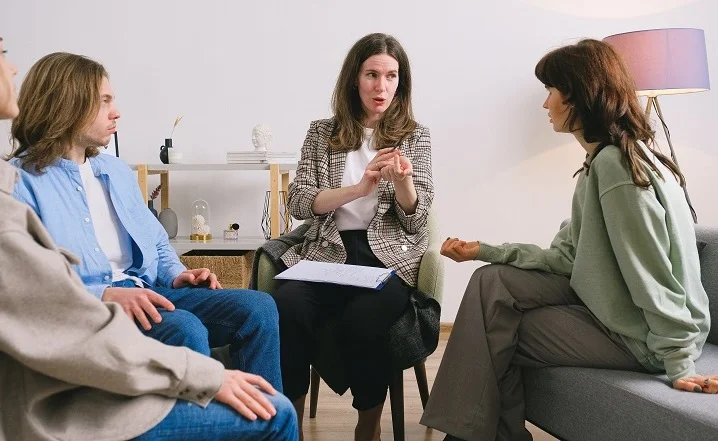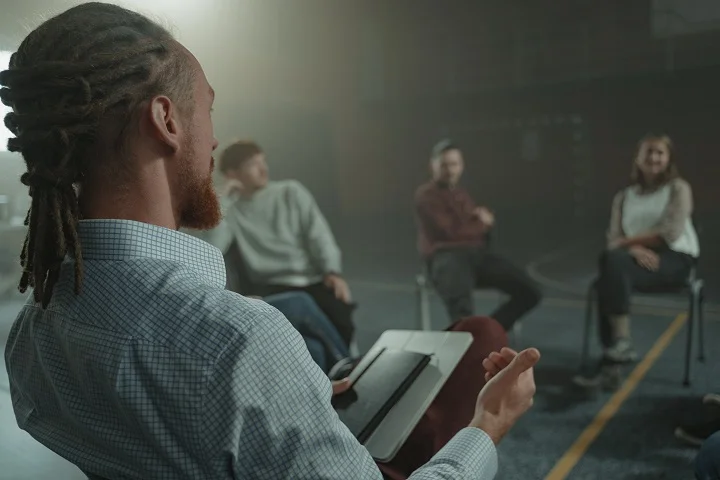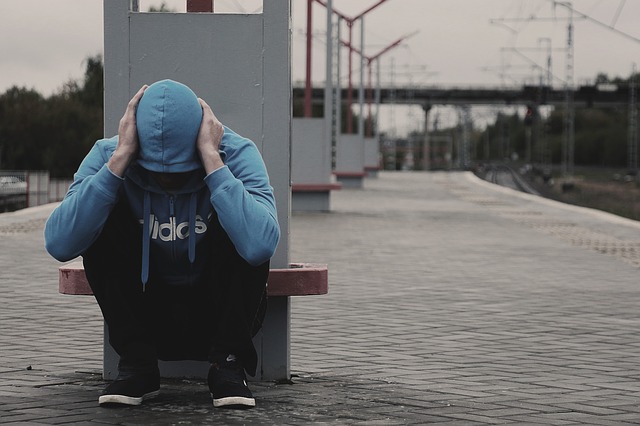- Home
- Addiction Treatment
- DBT For Addiction Treatment
DBT For Addiction Treatment
DBT is a supremely effective form of therapy that is used across the medical community to treat a multitude of different issues.
Therefore, it’s no surprise that people often use DBT as a way to treat addiction.
What is DBT?

DBT stands for Dialectical Behavioural Therapy, and it is based on the original concept of CBT (Cognitive Behavioural Therapy).
People may use this form of therapy for several different reasons:
- Helping to manage mental illnesses
- Overcome big life changes (loss of a home, death of a loved one, etc)
- Recovering from eating disorders
DBT, however, is different from CBT.
CBT focuses more on how to change your thoughts and behaviours, whereas DBT looks to help you accept who you are.
In addition to the above, DBT also features some group work compared to the individual treatment of CBT.
History of DBT

DBT is a relatively new treatment compared to other approaches to therapy.
It was developed in the 1970s by doctors with personal experiences of mental illness.
Dr Linehan was originally researching suicide, and then came to learn about borderline personality disorder (BPD) later on.
The doctor originally treated individuals that were studying with suicidal tendencies, but found that the treatment they had at the time wasn’t enough to help them.
Eventually, after some time they came to develop DBT as they found that giving treatment whilst also creating an atmosphere where the therapist and patient were equals was exactly what they needed.
Following the above, more methods were incorporated and over time doctors developed the DBT methods that are still used in treatment today.
Core Beliefs of DBT

It is often believed that DBT is used purely for people who suffer with BPD.
However, DBT is actually used to treat plenty of different issues and disorders.
The concept of DBT itself is set in a few core beliefs:
- The patient is trying their best
- The patient is here because they want to do better
- The patient wants to be motivated to make better choices
- The patient hasn’t caused these issues, but they have to find a way to fix them
- The patients will need coping mechanisms in all areas of their life
With the above principles, it is believed that patients have the best tools available and that with the right support they will thrive in future situations.
Some of the core principles of DBT are already used in treatment for substance abuse disorders.
Methods like CRAFT, for example, use elements of DBT by encouraging the individual to want to change rather than forcing them to do so.
With CRAFT and DBT together, people who are struggling with addiction will have the best possible tools at their disposal to find a long-term solution.
Mental Illness and Addiction

There has long been a link between addiction and mental illness.
Whether the addiction is caused by mental illness or the mental illness causes addiction is another matter entirely.
In fact, research shows that it is very common for people to have both mental health problems and struggle with substance abuse disorders.
Research further suggests that 70% of drug users and 86% of alcohol users have mental health problems.
As such, it’s a very big problem for people struggling with substance abuse.
DBT and Addiction Treatment

There are numerous studies and research that show that DBT improves a patient’s ability to function and abstain from substances.
As such, it’s an important treatment method that is incorporated into rehabilitation.
As a great deal of people also struggle with mental health problems, it is often used to treat both the cause of addiction as well as the addiction itself.
Usually, with effective treatment from DBT, people struggling with addiction can develop life-long coping mechanisms.
Of course, at Rehab Recovery, there are many different treatment options, and we will always help you cater your treatment plan to whatever you need.
DBT Techniques

If you’re seeking DBT for addiction treatment, there are usually a variety of different skills to learn.
These often include:
- Helping you to focus on the “here and now”
- Managing your emotions
- Learning to control impulses
- Practising mindfulness
- Dealing with change
Unlike CBT as well, DBT therapists are available to call if you are having a relapse or a difficult time.
This means that you can contact them any time for assistance or support.
This can be particularly helpful for people struggling with substance abuse disorders, because sometimes it is easy to get caught up in the moment and having a go-to person in that moment can make all the difference.
Are Other Treatments Used With DBT?

DBT is just one form of treatment and there are many other often used alongside it as part of a recovery plan.
These usually include:
- Group Therapy
- Coaching
- Psychotherapy
- One-on-One sessions
- Holistic and Complementary Therapies
- Consultations
- Phone support
Occasionally, if an individual is struggling with addiction and mental health issues, then professionals may use both DBT and CBT therapies.
This is because they may require treatments and support from both therapies.
This is usually reviewed on a case-by-case basis, however, and they are not often used together unless a therapist considers this as necessary.
Treatment for Addiction

It can be hard to find the right treatment for drug or alcohol addiction by yourself.
At rehab recovery, our job is to find the best option for you.
DBT is one of the most effective methods for this.
However, there are other steps involved before you may begin DBT.
If you are struggling with an addiction, you may have to go through detox first.
The detox process is usually the first step of your journey to recovery, and it is designed to assist you to move past the initial stages of withdrawal.
Of course, not all substances cause withdrawal symptoms, but you will still have support in the first few days that you stop using.
Following the detox, it will then be discussed what kind of support you need.
This is so that we can figure out if you need DBT, CBT or a combination of both to help with your substance abuse disorder and any underlying conditions.
The DBT Approach

The DBT approach is one of the most effective forms of treatment.
In fact, research suggests that there is a 73% likelihood that once treatment has been completed with DBT, then people who struggle with addictions will be more abstinent.
DBT should not be considered for all patients, however.
This is because DBT is most effective at helping with emotional regulation and if the addiction is rooted in mental health issues, or someone trying to avoid their emotions or feelings, then it would benefit these people the most.
What Conditions Can DBT Help Treat?

As stated, DBT was first created to help treat Borderline Personality Disorder.
Over time, it was found that it is effective in treating many other kinds of mental illnesses or disorders though.
Due to the above, the treatment was adapted and expanded to become the treatment we know today.
Now, it is well-known that it can assist in treating people with substance abuse disorders or other mental illnesses such as:
- Depression
- Bipolar disorder
- Anxiety
- Eating disorders
- Behavioural disorders
- Suicidal behaviour
In addition to the above, DBT can help treat people who are experiencing temporary issues as well.
These could be issues such as problems at home, work or even issues in relationships.
Goals of DBT

DBT has very specific goals, especially as it was originally crafted for people struggling with BPD.
Over time, however, these goals have been adjusted to incorporate the wide range of disorders and illnesses that DBT helps to treat.
If you are struggling with an addiction and will be receiving DBT therapy, then you will have just one goal to work towards: sobriety.
This goal is something tangible and achievable for the person who is receiving the treatment.
What you think makes life good and worth living could be something that you discuss with your therapist.
Everyone has different concepts of what they consider to be a good quality of life, and with DBT you will work towards what you need to achieve this.
In addition to the above, there are some more minor goals that the DBT therapist may work with you such as:
- Reducing the addictive tendencies
- Recognizing your triggers
- Reducing behaviour that would interrupt your quality of life
There may be further goals that the therapist will set after meeting with you and discussing your needs.
Getting Help Today

If you think you would benefit from DBT, whether because you are struggling with addiction or with a mental health condition, the important thing is to reach out today.
By contacting our professional, confidential and entirely free helpline, you can gain all the information you need to begin your recovery process.
With the right support behind you, no issue is too large to beat.


